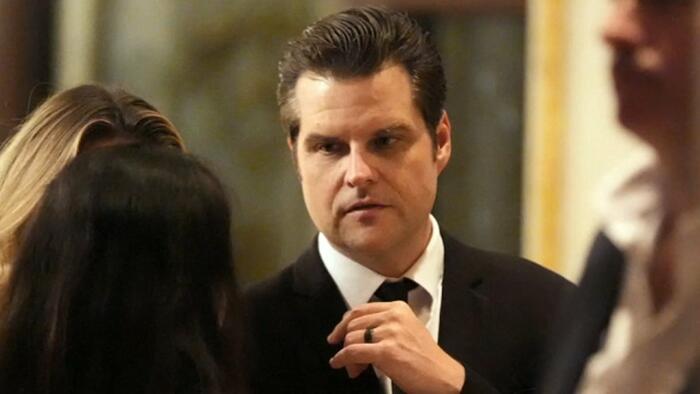Former Representative Matt Gaetz (R-FL) has stepped back from consideration for the position of Attorney General amidst rising sexual misconduct allegations that have overshadowed his candidacy. In a post on social media platform X, Gaetz expressed gratitude for the strong momentum he had initially received in the process. However, he acknowledged that his nomination was becoming a distraction from the essential duties associated with the Trump/Vance Transition. Stating the urgency of establishing the Department of Justice under Trump, Gaetz emphasized the importance of not letting personal controversies impede the administration’s goals.
Gaetz’s decision to withdraw was underscored by his assessment that the ongoing scrutiny and controversies surrounding him were detracting from important work ahead. He thanked the Senators he met with before his withdrawal and acknowledged the constructive feedback they provided. Gaetz’s emphasis on focusing on the transition rather than prolonging a Washington “scuffle” indicates a strategic choice aimed at preserving the administration’s priority to be fully operational from Day 1.
President-Elect Donald Trump later recognized Gaetz’s efforts in a statement on Truth Social, commending him for his pursuit of the Attorney General position. Trump reflected on Gaetz’s qualities and contributions, asserting that Gaetz was on a promising path and expressing excitement for his future opportunities. Trump’s acknowledgment appears to bolster Gaetz’s status within the party and suggests that while his nomination was reconsidered, he still holds a significant place in Trump’s inner circle.
The backdrop of sexual misconduct allegations has complicated Gaetz’s political landscape. The decision to resign from Congress to pursue the Attorney General role means Gaetz now faces uncertainty regarding his political future. The timing of these allegations and his subsequent withdrawal has raised questions about potential next steps, including the possibility of pursuing other political roles, such as a Senate seat.
In the context of political maneuvering, Gaetz’s decision not only reflects personal judgment but also hints at broader implications for Republican strategies under the incoming administration. As the Trump administration seeks to establish a firm foundation, navigating controversies without detracting from key goals appears to be a paramount concern for both Gaetz and Trump. This dynamic is especially crucial in handling public perception and maintaining party unity amid internal and external challenges.
Ultimately, Matt Gaetz’s withdrawal from the Attorney General candidacy showcases the delicate balance politicians must strike between personal controversies and public service commitments. With a focus on the future, both Gaetz and the Trump administration will need to consider how best to leverage their respective strengths while addressing the challenges that come with heightened scrutiny in the public eye. The evolving political landscape will undoubtedly influence Gaetz’s trajectory and the overall direction of the Republican Party.

